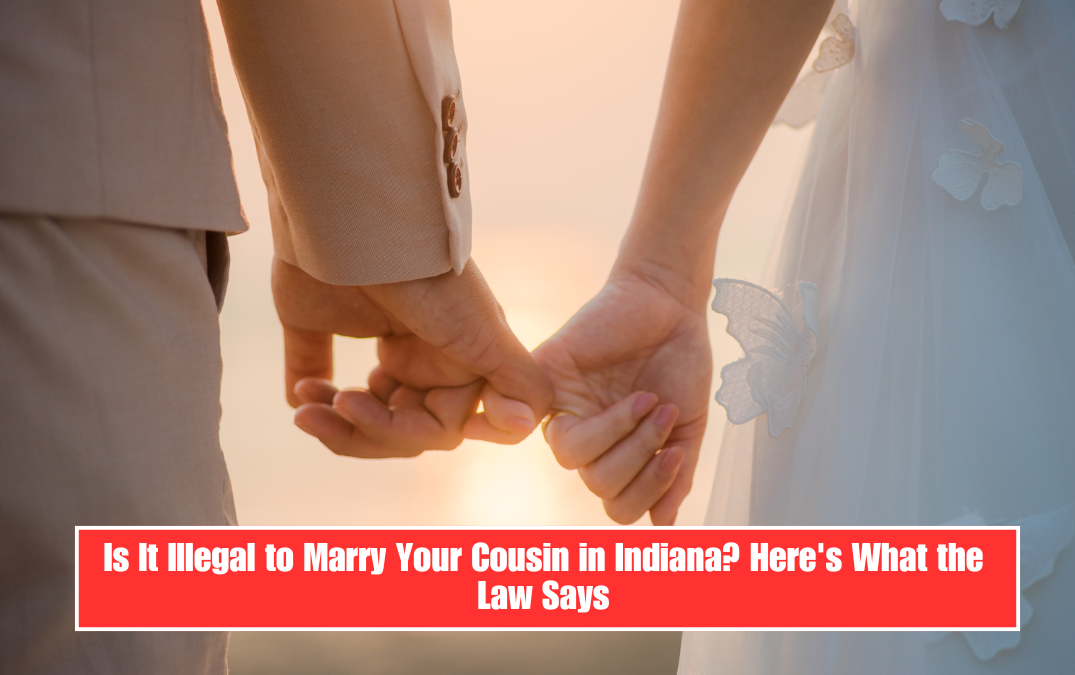Marriage rules can be different depending on where you live. In Indiana, there’s a specific law about whether first cousins can marry. While this may seem unusual or even shocking to some, it’s not a new topic. In fact, marrying within the family was quite common in the past, especially in close-knit communities.
Let’s break it down in simple terms and see what the law actually says about cousin marriages in Indiana.
Was It Normal to Marry Your Cousin in the Past?
Long ago, people often married within their own family or community. This helped families stay connected, especially in smaller towns where options were limited.
Even some very famous people married their cousins. U.S. President Franklin D. Roosevelt married Eleanor Roosevelt, his fifth cousin once removed. Renowned scientist Albert Einstein and famous naturalist Charles Darwin also married their first cousins. So, it wasn’t considered strange back then.
What Does Indiana Law Say About Cousin Marriage?
In Indiana, the law is clear. First cousins are not allowed to get married unless there’s a special case. That special case is based on age.
If both people are 65 years or older, then they can legally marry—even if they are first cousins. But if they’re younger than 65, then marrying a first cousin is against the law in Indiana.
This rule exists mainly due to concerns about health risks to children if both parents are closely related.
Can Other Types of Cousins Marry in Indiana?
Yes, they can. The law only blocks marriage between first cousins (if under age 65). That means people in Indiana can legally marry:
- Second cousins
- Third cousins
- First cousins once removed
- And any more distant relatives
So, unless you are trying to marry your first cousin and both of you are under 65, the law will not stop you. Why
Does the Law Limit First Cousin Marriages?
There’s a scientific reason behind this. Dr. Hanan Hamamy, a genetic expert from Geneva University, says there is a higher risk of health problems when close relatives marry. These risks include genetic disorders and birth defects, which are more common in children born to parents who are closely related.
Because of these concerns, many places, including Indiana, have laws to prevent such marriages—unless the couple is older and not planning to have children.
Even though cousin marriage may sound unusual today, it was once a normal thing in many families—even among some of history’s most well-known people. But in Indiana, first cousins cannot marry unless both are 65 or older. This law is in place to reduce health risks for children. However, more distant cousins like second or third cousins are free to marry in the state.
Knowing these laws can help people understand their rights and the reasons behind such rules, especially when it comes to health and family planning.














